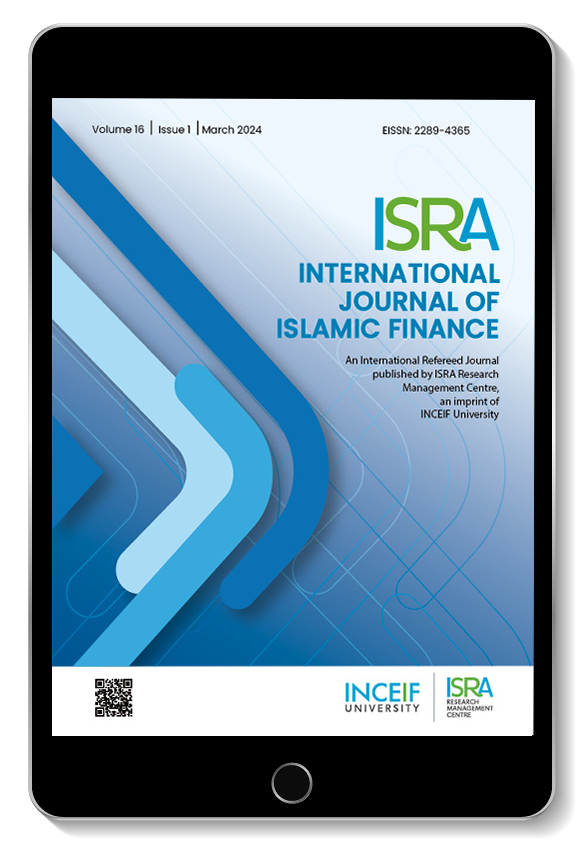Islamic Social Finance Initiatives: An Insight into Bank Islam Malaysia Berhad’s Innovative BangKIT Microfinance Product
IF 2.8
Q2 BUSINESS, FINANCE
引用次数: 0
Abstract
Purpose ― The aim of this study is to explore the initiative taken by Bank Islam Malaysia Berhad (BIMB) in upholding Islamic social finance (ISF) through the innovative BangKIT Microfinance product. Design/Methodology/Approach ― This paper adopts the qualitative approach to review and synthesise the relevant literature on microfinance and Islamic microfinance and, moreover, analyses the BangKIT Microfinance product offered by BIMB. Findings ― The paper identifies the ISF initiative undertaken by BIMB as one of the primary objectives of Islamic banks with the noble aim to contribute to the society. This study makes some recommendations for further improvement of the product to unlock the full potential of ISF. It also proposes such a unique ṣadaqah-based product to other Islamic financial institutions (IFIs) and Islamic microfinance institutions (IsMFIs) to promote the provision of credits to individuals and businesses that lack access to fundamental financial products and services. Originality/Value ― This paper sheds light on the use of loans and ṣadaqah-based products as a microfinance initiative offered by an Islamic bank. Although there are several microfinance institutions (MFIs) in Malaysia, this product is amongst the pioneer contributions to the role of Islamic banks in ISF.伊斯兰社会金融倡议:马来西亚伊斯兰银行创新BangKIT小额信贷产品透视
目的-本研究的目的是探讨马来西亚伊斯兰银行(BIMB)在通过创新的BangKIT小额信贷产品支持伊斯兰社会金融(ISF)方面所采取的举措。设计/方法/方法-本文采用定性方法来审查和综合小额信贷和伊斯兰小额信贷的相关文献,此外,还分析了BIMB提供的BangKIT小额信贷产品。研究结果-该文件确定由BIMB开展的ISF倡议是伊斯兰银行的主要目标之一,其崇高目标是为社会做出贡献。本研究提出了进一步改进产品的建议,以释放ISF的全部潜力。它还向其他伊斯兰金融机构(IFIs)和伊斯兰小额信贷机构(ismfi)提出了这种独特的ṣadaqah-based产品,以促进向无法获得基本金融产品和服务的个人和企业提供信贷。原创性/价值-本文阐明了贷款和ṣadaqah-based产品作为伊斯兰银行提供的小额信贷倡议的用途。虽然马来西亚有几家小额信贷机构(mfi),但该产品是伊斯兰银行在ISF中发挥作用的先驱贡献之一。
本文章由计算机程序翻译,如有差异,请以英文原文为准。
求助全文
约1分钟内获得全文
求助全文
来源期刊

ISRA International Journal of Islamic Finance
BUSINESS, FINANCE-
CiteScore
3.40
自引率
17.40%
发文量
18
审稿时长
20 weeks
期刊介绍:
It is the aspiration of the editorial committee that IJIF achieves the highest rank in quality and substance. It is thus our aim that the journal be carried in the Thompson Reuters’ ISI and Scopus databases. By ensuring high standards in articles published in Islamic finance we ensure that further innovation and research is carried out and promoted in the Islamic finance industry and academia. IJIF publishes 2 issues per annum.
 求助内容:
求助内容: 应助结果提醒方式:
应助结果提醒方式:


